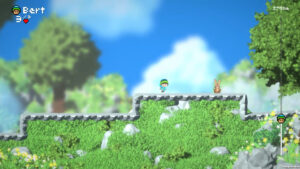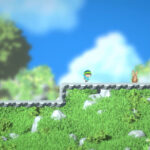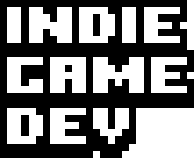Introduction:
In the vast and dynamic realm of game development, independent developers have been making a significant impact with their unique creations. Among them, solo indie game developers stand out as true champions of creativity, innovation, and resourcefulness. This blog post will explore the skill set required to thrive as a solo indie game developer, shedding light on the key areas where one must excel to succeed in this challenging but rewarding endeavor.
1. Proficiency in Programming:
At the core of every game lies code. As a solo indie game developer, being proficient in programming languages such as C++, C#, or JavaScript is essential. A solid foundation in programming empowers developers to build game mechanics, create AI systems, implement physics, and optimize performance. Additionally, familiarity with game engines like Unity or Unreal Engine is invaluable for rapid prototyping and development.
2. Game Design and Creativity:
Game design is the soul of any successful game. Solo indie developers need to wear multiple hats, including that of a game designer. This entails crafting engaging gameplay mechanics, designing immersive worlds, and developing captivating narratives. A strong understanding of player psychology, mechanics, and aesthetics is crucial for creating memorable experiences.
3. Artistic Skills:
While larger studios often have specialized artists, solo indie developers must possess at least basic artistic skills. This includes creating or manipulating 2D and 3D assets, designing user interfaces, and crafting visually appealing game elements. Proficiency in graphic design tools like Photoshop or Illustrator, or 3D modeling software such as Blender, can significantly enhance a developer’s artistic capabilities.
4. Sound Design and Music Composition:
Sound design and music play pivotal roles in shaping the atmosphere and emotional impact of a game. As a solo indie developer, being able to create or source appropriate sound effects and music is essential. Knowledge of audio editing software, such as Audacity or Adobe Audition, and basic music composition skills can help elevate the overall audio experience of the game.
5. Project Management and Organization:
Solo indie game development requires excellent project management skills. Being able to plan, prioritize, and set achievable goals is vital for staying on track and meeting deadlines. Familiarity with project management tools, like Trello or Jira, can assist in organizing tasks and tracking progress. Efficient time management and the ability to work independently are also crucial in maintaining productivity.
6. Marketing and Business Acumen:
Creating a remarkable game is only half the battle. As a solo indie developer, it’s essential to market and promote your game effectively. Understanding basic marketing strategies, developing a social media presence, and building a community around your game can significantly impact its success. Moreover, having a grasp of business concepts like budgeting, monetization models, and pricing strategies is crucial for sustainability and growth.
Conclusion:
Solo indie game development is a remarkable journey that requires a diverse skill set and unwavering dedication. From programming and game design to artistic abilities and business acumen, solo indie developers must excel in multiple disciplines. While the road may be challenging, mastering these skills can open doors to unlimited creative possibilities and help forge a rewarding career in the vibrant world of independent game development. So, if you have the passion and determination, dive in and let your imagination soar as you craft your own unique gaming experiences.















